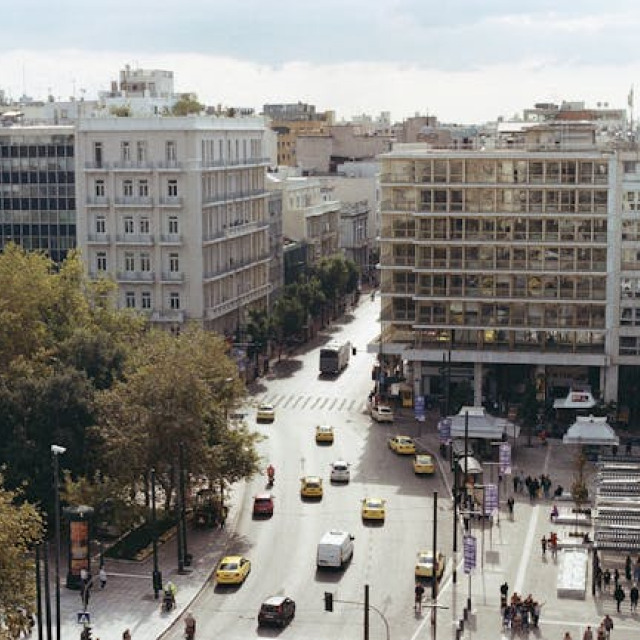Greece may have cooled after a week of blistering 40-plus degree heat — but for thousands of workers, the damage is already done. Outdoor work bans, stalled deliveries and sluggish offices are fast becoming part of a worrying new normal.
For Athens delivery rider Giorgos Margiekakis, the searing summer isn't just uncomfortable — it's devastating his pay packet.
"The heat just makes everything harder," Margiekakis told CGTN. "When they stop us from working in the hottest hours, we lose pay we can't afford to lose. If we're forced off the road for safety, the company or the government should be covering that lost income."
When the mercury spikes past 40°C, the Ministry of Labor orders outdoor work to halt. That means fewer orders, less cash, and hours that can never be made up.
Across the capital, riders are starting earlier, cutting routes, and swapping the midday rush for survival tactics. But labour lawyer Konstantinos Karouzos warns quick fixes won't cut it.
"We need permanent rules — thermal insulation for buildings, compulsory remote work during heatwaves, and a full suspension of outdoor labour in dangerous conditions," Karouzos argued.
The financial hit is real. According to Allianz Trade, Greece's GDP could shrink by up to 1.1 percent this year due to extreme heat. The International Labour Organization says heat stress is already costing the world 2.2 percent of working hours — the equivalent of 80 million full-time jobs.
Economist Panagiotis Petrakis says the chain reaction is brutal. "Heatwaves cut productivity, delay projects, and disrupt supply chains. It's a chain reaction that affects everything from prices to employment."
For riders like Margiekakis, that means every degree hotter is money lost. "We're already working long hours to make ends meet," he says. "If extreme weather keeps us home, there needs to be proper compensation — our bills don't stop just because the work does."
The government says it's reviewing heat protocols, while unions push for siesta-style working hours and investment in cooling infrastructure. But for now, teleworking remains a mere recommendation — "not enough for what has become a permanent climate reality," Karouzos warns.
Petrakis says the stakes couldn't be higher. "If we don't adapt quickly, temporary losses could turn into permanent damage to the economy."
From the sweltering streets of Athens to the nation's balance sheets, heatwaves are rewriting not only how Greeks work — but how much they can work. And with last year the hottest on record, there's no sign this story will cool down.
Πηγή: cgtn.com






